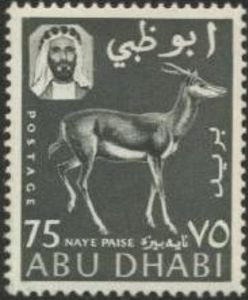 |
| This isn't actually Cecil, but isn't it concerning that we care more about a murdered lion than a murdered nation? |
When I began this world survey I was living in Miami, a relatively conservative city by American standards, where I tended to be regarded as a liberal; now I am living in San Francisco, a city which has not yet outlawed the word "conservative", though its time is clearly nigh, and my liberality is widely perceived as a form of reactionary though well-meaning old-fashionedism, with a small measure of old-fartism on the side. How then, in my newly-minted state of confusion over my own political stance, how am I supposed to interpret this description of Zimbabwe, which does not come from the pages of Emma Goldman's anarchist rag 'Mother Earth', nor from Human Rights Watch, nor from Amnesty International. I wonder if you can guess which loonie leftie with a dogmatic perspective it was who wrote this (and no, it wasn't Rachel Maddow of MSNBC):-
"The UK annexed Southern Rhodesia from the former British South Africa Company in 1923. A 1961 constitution was formulated that favored whites in power. In 1965 the government unilaterally declared its independence, but the UK did not recognize the act and demanded more complete voting rights for the black African majority in the country (then called Rhodesia). UN sanctions and a guerrilla uprising finally led to free elections in 1979 and independence (as Zimbabwe) in 1980. Robert Mugabe, the nation's first prime minister, has been the country's only ruler (as president since 1987) and has dominated the country's political system since independence. His chaotic land redistribution campaign, which began in 1997 and intensified after 2000, caused an exodus of white farmers, crippled the economy, and ushered in widespread shortages of basic commodities. Ignoring international condemnation, Mugabe rigged the 2002 presidential election to ensure his reelection."
Words like "annexed" and "rigged" are the big give-aways of course; how does a country annexe a piece of land held by its own trade representatives overseas? "Nationalised", perhaps; or simply "took back control of"; but "annexed" is a word filled with agendas. "Rigged" even more so, though it is undeniable that Mugabe did rig that election, and others since, to keep him still in power at age 98. As to "chaotic land redistribution", "crippled the economy", and "widespread shortages of basic commodities", a Zimbabwean could find himself in prison for writing that, and no foreigner who did so would ever be allowed an entry visa.
So who wrote it, that's what you are dying to know? Who wrote it? The CIA, that's who, in their World FactBook. The CIA, that bastion of left-wing liberalism.
I shall write no more about this benighted land until the news of Mugabe's death is reported, and I can return to report hope and possibility - however negligible and unlikely that may be, given that he is grooming his wife to succeed him - for its future.
Marks for: 0
Marks against: 35 (the number of years Mugabe has spent ruining his country while getting rich at its expense)
"The UK annexed Southern Rhodesia from the former British South Africa Company in 1923. A 1961 constitution was formulated that favored whites in power. In 1965 the government unilaterally declared its independence, but the UK did not recognize the act and demanded more complete voting rights for the black African majority in the country (then called Rhodesia). UN sanctions and a guerrilla uprising finally led to free elections in 1979 and independence (as Zimbabwe) in 1980. Robert Mugabe, the nation's first prime minister, has been the country's only ruler (as president since 1987) and has dominated the country's political system since independence. His chaotic land redistribution campaign, which began in 1997 and intensified after 2000, caused an exodus of white farmers, crippled the economy, and ushered in widespread shortages of basic commodities. Ignoring international condemnation, Mugabe rigged the 2002 presidential election to ensure his reelection."
Words like "annexed" and "rigged" are the big give-aways of course; how does a country annexe a piece of land held by its own trade representatives overseas? "Nationalised", perhaps; or simply "took back control of"; but "annexed" is a word filled with agendas. "Rigged" even more so, though it is undeniable that Mugabe did rig that election, and others since, to keep him still in power at age 98. As to "chaotic land redistribution", "crippled the economy", and "widespread shortages of basic commodities", a Zimbabwean could find himself in prison for writing that, and no foreigner who did so would ever be allowed an entry visa.
So who wrote it, that's what you are dying to know? Who wrote it? The CIA, that's who, in their World FactBook. The CIA, that bastion of left-wing liberalism.
I shall write no more about this benighted land until the news of Mugabe's death is reported, and I can return to report hope and possibility - however negligible and unlikely that may be, given that he is grooming his wife to succeed him - for its future.
Marks for: 0
Marks against: 35 (the number of years Mugabe has spent ruining his country while getting rich at its expense)
You can find David Prashker at:
http://theargamanpress.com/
http://davidprashker.com/
http://davidprashker.net/
https://www.facebook.com/TheArgamanPress
http://davidprashkersprivatecollection.blogspot.com
http://davidprashkerssongsandpoems.blogspot.com
http://davidprashkersbookofdays.blogspot.com/
http://davidprashkersartgallery.blogspot.com
http://theargamanpress.com/
http://davidprashker.com/
http://davidprashker.net/
https://www.facebook.com/TheArgamanPress
http://davidprashkersprivatecollection.blogspot.com
http://davidprashkerssongsandpoems.blogspot.com
http://davidprashkersbookofdays.blogspot.com/
http://davidprashkersartgallery.blogspot.com
Copyright © 2015 David Prashker
All rights reserved
The Argaman Press









